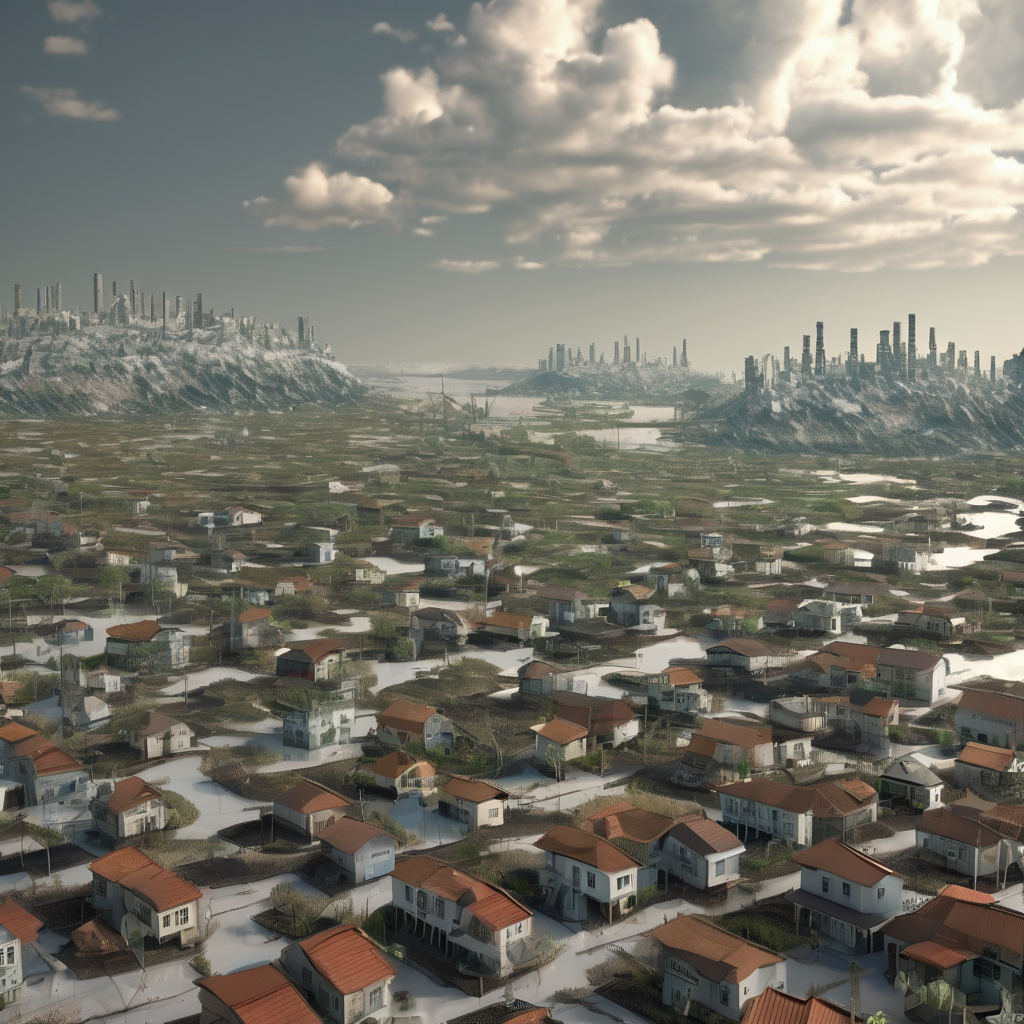Climate change presents significant economic challenges and calls for effective solutions to mitigate its impacts and transition to a sustainable future. The complex and interconnected nature of the global economy and the environment requires a comprehensive understanding of the economic aspects of climate change.
Climate change is largely attributed to the market failure known as the “tragedy of the commons.” The unpriced externalities associated with greenhouse gas emissions allow businesses and individuals to emit carbon dioxide without bearing the full costs of the resulting climate impacts. This creates an economic distortion that undermines the efficient allocation of resources and disincentivizes the adoption of low-carbon technologies and practices. Shifting to a low-carbon economy involves significant transition costs large amounts of funds, which acts as a main barrier to a complete transition to renewable industries. Industries heavily relied on fossil fuels may face financial challenges and job displacements, while investments in renewable energy and sustainable infrastructure require substantial upfront capital. Transition costs and uncertainties can hinder the willingness of businesses and governments to undertake ambitious climate action.
In addition, Climate change impacts are not evenly distributed, and vulnerable populations are often disproportionately affected. Economic disparities can deepen as climate change exacerbates poverty, disrupts livelihoods, and increases social and economic inequalities. Addressing these equity concerns requires strategies that ensure fair access to resources, technology transfer, and climate finance. Climate change also involves inherent uncertainties and risks, making it challenging to quantify the economic impacts accurately. The long-term nature of climate change and the complex interactions between climate, ecosystems, and human systems make it difficult to predict and assess the economic consequences. This uncertainty can hinder investment decisions and policy planning.
However, there are some solutions to the problems listed above, in which the government plays a important role in. Transitioning to renewable energy sources and improving energy efficiency are crucial for decarbonizing the economy. Governments can provide incentives, subsidies, and regulatory frameworks to promote renewable energy deployment and energy-efficient technologies. Investing in research, development, climate resilience and adaptation measures can drive innovation and reduce the costs of clean energy technologies, making them more economically competitive. Governments, businesses, and communities need to assess vulnerabilities, develop adaptation strategies, and incorporate climate risk into decision-making processes. Insurance mechanisms, early warning systems, and resilient infrastructure can help mitigate economic losses and protect livelihoods. Implementing carbon pricing mechanisms, such as carbon taxes or cap-and-trade systems, can internalize the costs of greenhouse gas emissions. By putting a price on carbon, these market-based instruments create incentives for businesses and individuals to reduce emissions and invest in low-carbon alternatives. Revenue generated from carbon pricing can be used to fund climate mitigation and adaptation measures. This would be a win-win situation, as not only would it propel efforts for a greener market, but would also increase funds for climate mitigation campaigns.
Addressing climate change requires global cooperation and financial support, particularly for developing countries. Developed nations can fulfill their commitments to provide climate finance, technology transfer, and capacity-building assistance to support climate action in vulnerable regions. International agreements, such as the Paris Agreement, provide a framework for collective action and coordination. Transitioning towards a circular economy can promotes resource efficiency, recycling, and waste reduction, can contribute to climate change mitigation. Encouraging sustainable consumption patterns and reducing overconsumption can alleviate the strain on natural resources and reduce carbon emissions. Governments also should prioritize sustainable infrastructure investments, such as public transportation, renewable energy projects, and climate-resilient buildings. These investments not only reduce greenhouse gas emissions but also stimulate economic growth, create jobs, and enhance resilience to climate change impacts.
In conclusion, the economics of climate change present multifaceted challenges that demand innovative and comprehensive solutions. By addressing market failures, internalizing carbon costs, promoting renewable energy, investing in sustainable infrastructure, fostering international cooperation, and enhancing climate resilience, we can navigate the economic complexities of climate change and build a more sustainable and prosperous future. Effective climate policies and actions should aim to align economic incentives with environmental objectives, ensuring a just and resilient transition to a low-carbon economy.







Leave a Reply